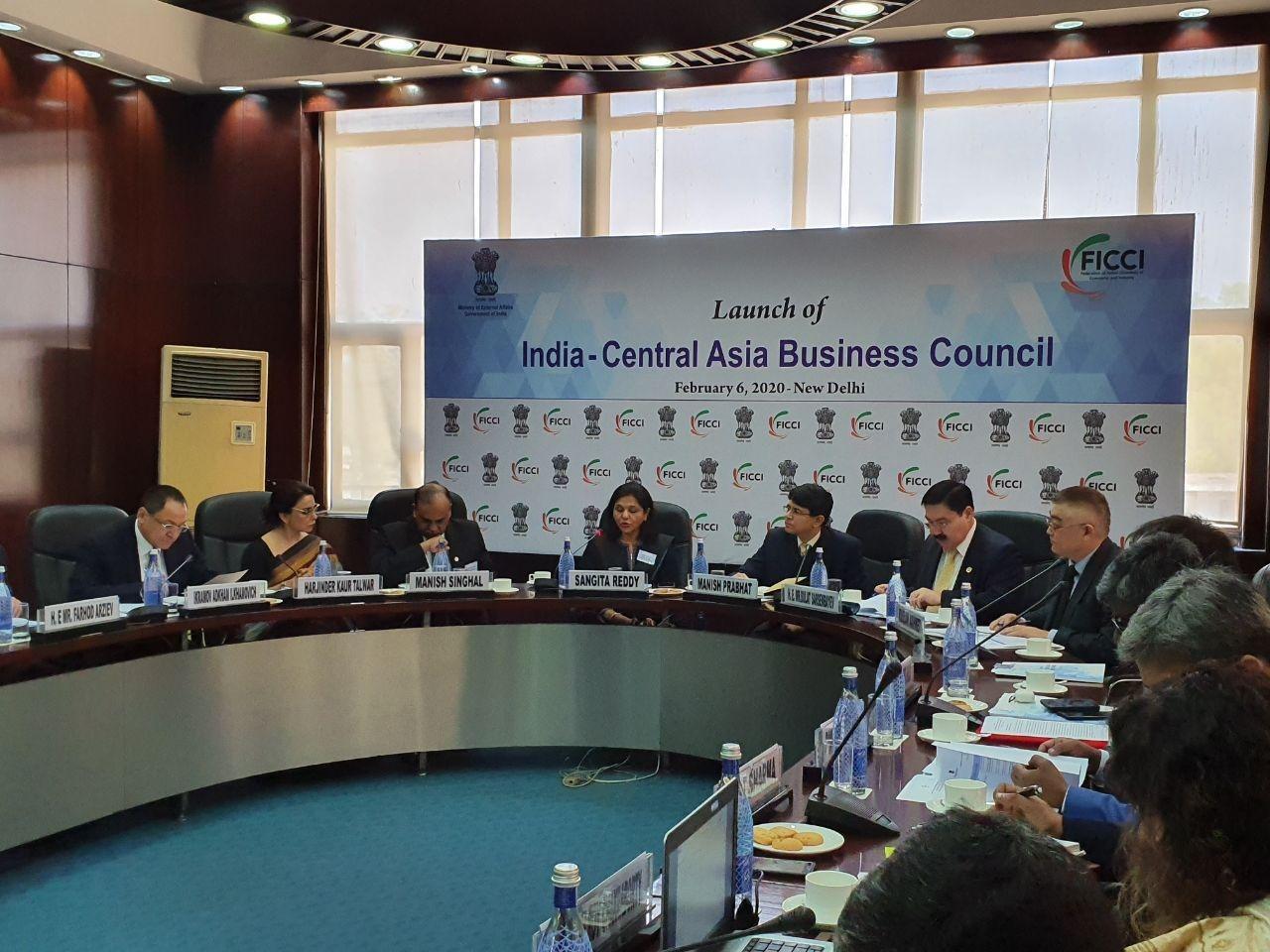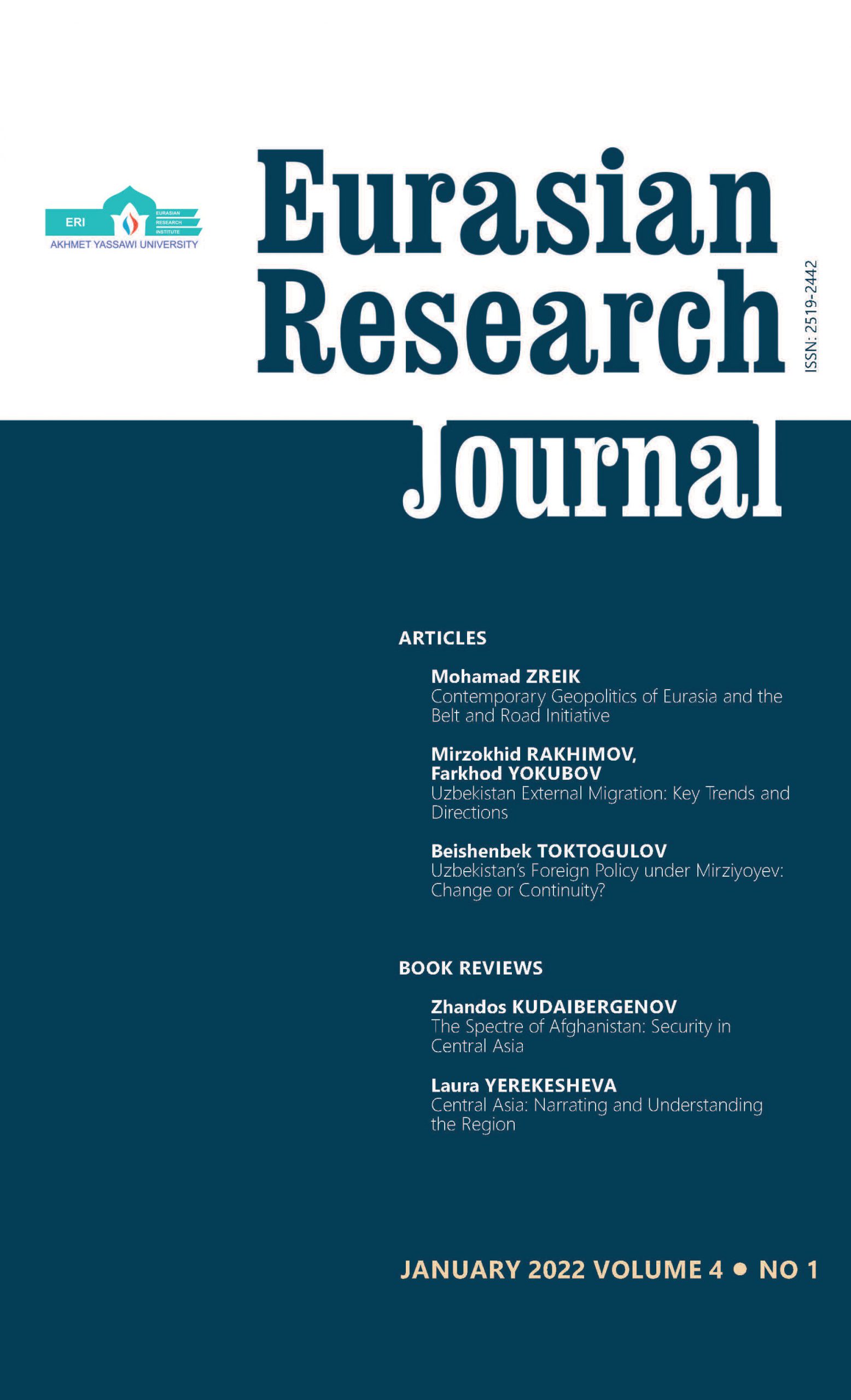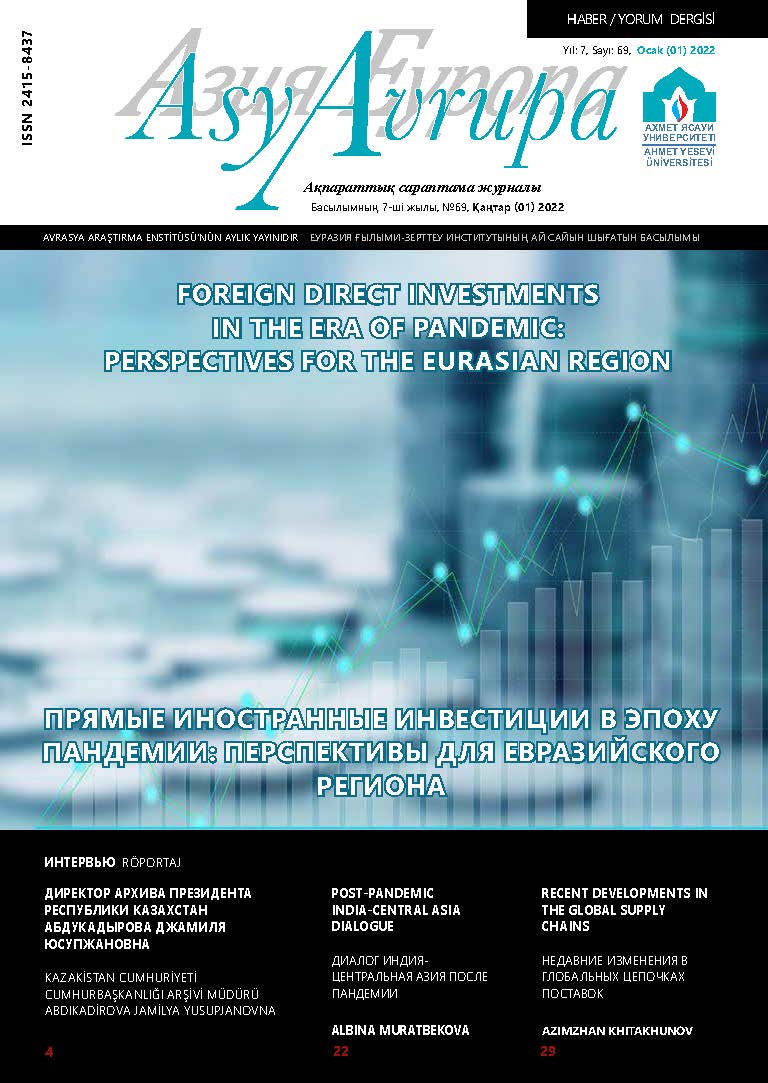Page 19 of 97
Labor Migration and Emerging Migrant Diplomacy in Central Asia
Labor migration is one of the most sensitive issues for the governments of Kyrgyzstan, Tajikistan, and Uzbekistan. The three Central Asian republics were the ones that have had the largest population growth after the collapse of the Soviet Union. For instance, over the three decades since 1990, Kyrgyzstan’s population has […]

February 2, 2022
Recent Developments in the Global Supply Chains
Development of the global supply chains gained importance following the pandemic-related disruptions, which caused negative consequences such as inflation. Economists and policy experts are debating about the future of the global supply chains as policy responses from advanced and developing economies were different. Therefore, this commentary aims to review recent […]

Tags: Economy
Post-Pandemic India-Central Asia Dialogue
On December 19, 2021, the first time after the COVID-19 breakout, Ministers of Foreign Affairs of India and Central Asian states met in New Delhi for the third meeting of the India-Central Asia Dialogue. The dialogue meeting was chaired by the Minister of Foreign Affairs of India, Dr S. Jaishankar. […]

Tags: Central Asia, India, International Relations
Eurasian Research Journal Volume 4, No. 1
Eurasian Research Journal is a refereed journal of international standards aiming to publish scientific articles in a wide range of fields including economics, finance, energy, international relations, security, transportation, politics and sociology in the Eurasian region that covers the territory from the Balkans to Mongolia with particular focus on Turkic […]

February 1, 2022
Turkmenistan-Russia Energy Cooperation in the Context of Natural Gas Trading
In 2003, during the visit of the President of Turkmenistan Saparmurat Niyazov to Moscow, two key agreements were signed, focused on cooperation in the energy sector and interaction in the field of security [Kremlin.ru, 2003]. The priority area of cooperation between the two states has always been the oil and […]

Tags: Gas, International Relations
Foreign Direct Investments in the Era of Pandemic: Perspectives for the Eurasian Region
Despite the fact that the severe acute respiratory syndrome (SARS) outbreak during 2002-2004 caused by the first known zoonotic coronavirus affected a relatively small number of people and countries, its negative impact on the financial flows, particularly Foreign Direct Investment (FDI), was well noticed by financial analysts, although the final […]

Asya Avrupa No: 69
Değerli Asya Avrupa Dergisi okuyucuları, Avrasya Araştırma Enstitüsü tarafından çıkarılan Asya Avrupa Dergisi’nin 69. Sayısı ile karşınızdayız. Enstitü ekibi olarak yine dopdolu bir sayı hazırladık. İyi okumalar diliyoruz. Yabancı yatırımları çekmede, “enerji”, en kilit öğelerden biridir. Orta Asya genelinde enerji meselesi de, özellikle iklim değişikliğinin getireceği olumsuz etkilerle mücadele bağlamında […]

January 29, 2022
Iranian Nuclear Deal Crisis
The “Joint Comprehensive Plan of Action” (JCPOA) agreement signed in 2015 during the period of Barack Obama was repeatedly criticized by Donald Trump, who was elected as the President of the United States of America (USA) in 2017. Stating that the agreement did not cover Iran’s ballistic missile program, Trump, […]

Tags: International Relations, Security
January 28, 2022
Ethnocultural and Spiritual Dimension of Turkistan in the Integration of the Turkic World
Cultural revival in Turkistan is becoming a major platform for rapprochement with the Turkic world in the foreign policy of Kazakhstan. The current political and economic situation in the Turkic-speaking countries of the world requires mutual integration. In this regard, Turkistan, the spiritual capital of the Turkic states, has sufficient […]

Tags: International Relations
January 24, 2022
Shadowed Social Aspects of the Pandemic
The COVID-19 pandemic, as many experts and observers have already noted, did not so much generate, but intensify and exacerbate some of the negative trends that existed in society before its appearance. The current situation shows that many half-hidden problems in society have suddenly turned into social pain points, which […]

Tags: Sociology
January 1, 2022
Page 19 of 97
